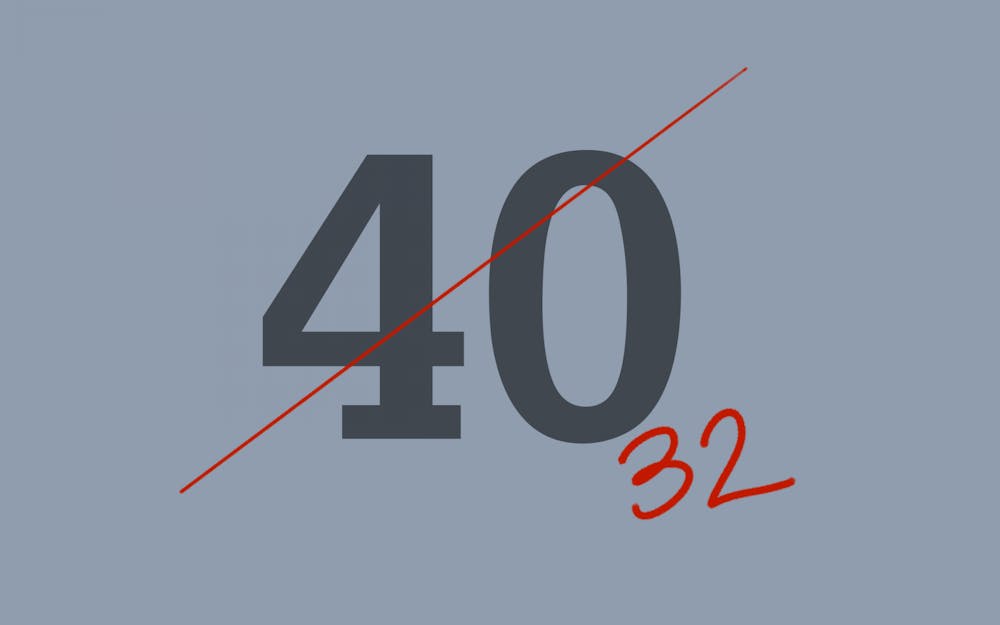Americans should be working less.
Alright, so I might be a lazy and entitled college student — but economist John Maynard Keynes wasn’t. He wrote an essay in 1930 called “Economic Possibilities for our Grandchildren,” predicting that by the end of the next hundred years — around 2030 — humanity would have accumulated so much wealth that it would only be necessary for people to work just 15-hour weeks, three hours each day.
I never want another word from anyone about Marxism being “utopian” when a bourgeois theorist like Keynes was writing about three hour workdays in the middle of the Great Depression. Keynes certainly wasn’t a radical leftist, but perhaps one would like a more conservative opinion about the possibilities of working less. How about Richard Nixon?
In 1956, then-Vice President Nixon foresaw a four-day workweek and that Republican policies would eventually allow workers to work less and have more time for their families. Good old conservative, family values.
Keynes, Nixon and Marx all agree: average workers should be working less. It’s not just lazy, entitled college students who think so — this is bona fide bipartisanship.
But perhaps you’re skeptical. Can society afford people working less? If we can afford to work less, by how much? Companies around the world are experimenting with shorter work weeks, and it’s producing great results.
From 2015 to 2019, two trials were conducted involving 2,500 workers in Iceland working 35 instead of 40 hours per week without a reduction in pay. The results showed workers had increased well-being and less stress while maintaining productivity. Since the trials, 86% of Iceland’s working population have either moved to shorter hours or have the right to negotiate doing so.
But if you're a privileged ingrate like I am, whose only job is apparently writing about how much work sucks, working 35 hours per week still seems like a lot. Can’t humanity do better?
New Zealand says society can. In 2018, New Zealand company Perpetual Guardian embarked on a two-month experiment with a four-day workweek. Workers would work 30 hours but be paid for 37.5 hours as before. The results were stunning. Workers reported having less stress, a better work-life balance and increased productivity.
The Perpetual Guardian experiment was so successful, the four-day work week is now permanent. Its success even inspired multinational corporation Unilever New Zealand to begin a four-day workweek trial in 2020 with its employees.
In other parts of the world, similar experiments with shorter workweeks are seeing promising results. Microsoft workers in Japan saw boosted productivity after trying a four-day workweek. At the start of 2022, government employees in the United Arab Emirates switched from working five days to four-and-a-half.
Now, you are, I’m sure, a good, patriotic American. As Americans are we really going to let the rest of the world show us up? Shouldn’t American workers get to enjoy similar benefits to some workers around the world?
There is some hope in the West. In the land of Hollywood elites and lazy, entitled millennials, U.S. Rep. Mark Takano introduced a yet-to-be-heard bill in July 2021 that would reduce the workweek from 40 to 32 hours. Yes, I know the conservative reader probably hates California because it just doesn’t produce Ronald Reagans like it used to, but consider it.
It’s no secret many Americans dislike their jobs. If studies around the world seem to show people can work less without a reduction in pay, we should emulate that. Workers would have more time for family, seeing friends and sleeping in until noon on Fridays. Most importantly, they’d have more time for not working.
The capitalists will complain about increased labor costs and make all sorts of threats about what they might do if a four-day work week is passed nationwide. But it’s time the rich minority stopped dominating the lives of the working majority. Workers must take control over their own lives. Working less and having more free time is the first step.
Jared Quigg (he/him) is a sophomore studying journalism and political science.




